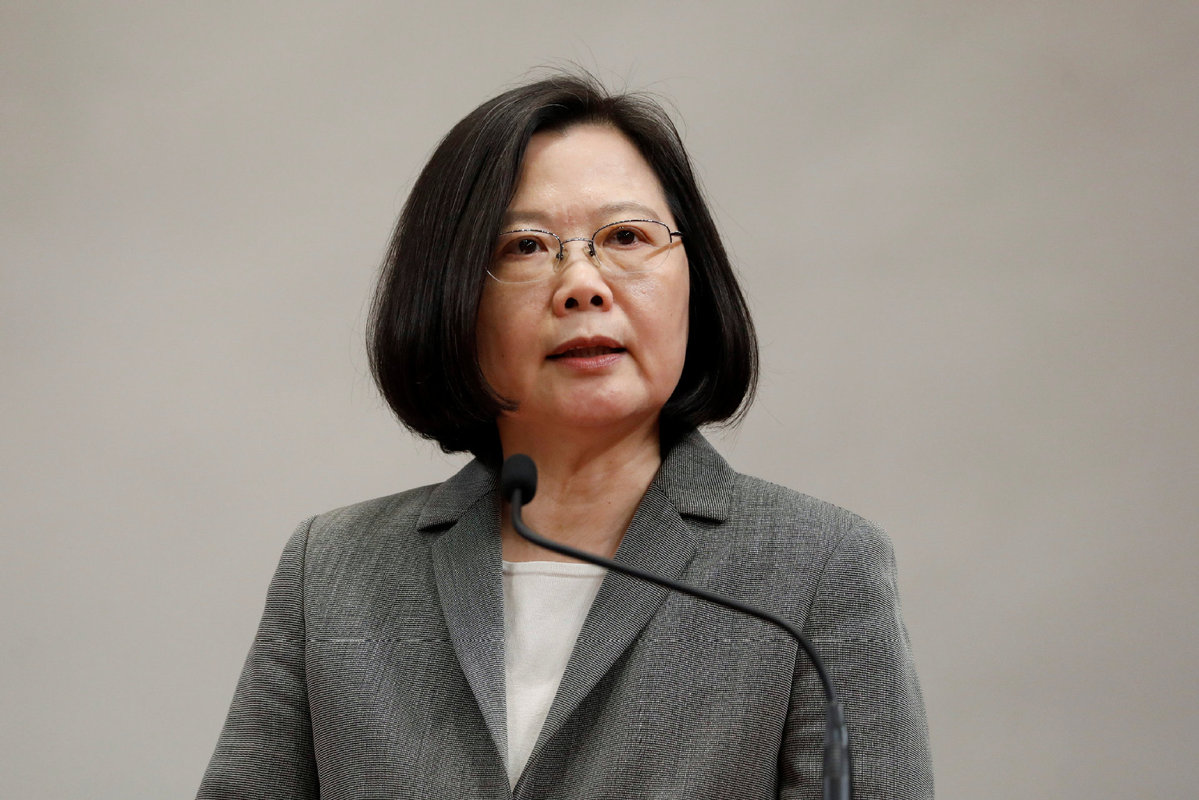Secessionists should refrain from provoking Beijing


Some foreign media outlets have been speculating over the possibility of the Chinese mainland using force to achieve national reunification, and accusing Beijing of intimidating the Tsai Ing-wen administration in Taiwan and unilaterally changing the status quo across the Straits.
If they are worried about such a possibility, they should ask Tsai and her "pro-independence" supporters why they have been threatening to cross the mainland's bottom line. That Tsai will attend a so-called democracy summit in Copenhagen, Denmark, and meet US Secretary of State Mike Pompeo and some high-profile "activists" from Hong Kong such as Joshua Wong has exposed her agenda of seeking US support to create trouble for the mainland.
Instead of heeding Beijing's repeated calls to reverse its course and restore cross-Straits relations by acknowledging the 1992 Consensus that there is only one China, the Tsai administration has joined hands with the United States to "de-Sinicize" the island in order to sever all historical and cultural ties with the mainland. After Tsai took office in 2016, cross-Straits ties have been on a downward spiral, shifting from peaceful exchanges to conflicts. Therefore, concerns are growing over the future of cross-Straits ties.
In her inaugural speech for her second term on May 20, Tsai further widened the chasm with the mainland. It is because of Tsai's insistence on not acknowledging the 1992 Consensus and promoting "Taiwan independence" that doubts have arisen about Beijing using force to realize national reunification.
Tsai has set the tone for her administration's hostile policy toward Beijing for the next four years. On the other hand, the National People's Congress has authorized its Standing Committee to enact national security legislation for the Hong Kong Special Administrative Region, and the mainland held a panel meeting on the 15th anniversary of the Anti-Secession Law, which surmises the mainland's policy toward Taiwan, showing Beijing will safeguard national security, sovereignty and territorial integrity at all costs.
Achieving national reunification is one of the three historical missions of the mainland. As a matter of fact, the 19th National Congress of the Communist Party of China in 2017 reiterated the importance of national reunification. Emphasizing the policy of peaceful national reunification through the "one country, two systems" principle, the Party Congress highlighted the need to safeguard national sovereignty and territorial integrity, and reiterated Beijing's zero tolerance for secessionist activities.
Which means the mainland will try to achieve national reunification through peaceful means but not rule out the use of force as a last option to realize the goal-and that is exactly what the Anti-Secession Law says.
Over the past four years, Tsai and her ruling Democratic Progressive Party have refused to recognize the 1992 Consensus. Continuous separatist activities led by the Tsai administration have undermined the political foundation of peaceful development across the Straits, creating frequent conflicts between the two sides.
Tsai's inaugural address on May 20 once again showed the DPP will not change its pro-independence stance easily, perhaps because it is emboldened by the US' policy shift toward Beijing and the White House and the Tsai authorities working more closely to curb China's rise. Which means cross-Straits conflicts could increase.
The mainland will promote cross-Straits relations for the benefit of both sides and to strengthen Taiwan compatriots' sense of national identity leading to peaceful national reunification. If the Tsai administration keeps promoting its "Taiwan independence" agenda with the aim of completely changing the nature of cross-Straits ties while the US plays the "Taiwan card" threatening China's national sovereignty and territorial integrity, Beijing will have to intensify crackdowns on the Taiwan secessionists and use non-peaceful means to safeguard national sovereignty and security.
And if the DPP and Washington cross the mainland's bottom line, they will have themselves to blame and face the consequences.
The author is a professor at the Taiwan Research Center at Xiamen University. The views don't necessarily represent those of China Daily.

































